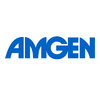Associate Systems Engineer
80+ Associate Systems Engineer Interview Questions and Answers

Asked in IBM

Q. Given a string or sentence, reverse it and replace the vowels with numbers from 1 to 9. In the reversed string, the replaced numbers should appear in descending order from left to right. If there are more than...
read moreReverse a string and replace vowels with numbers in descending order. Restart numbering if more than 9 vowels.
Reverse the given string using built-in functions or loops
Create a dictionary to map vowels to numbers from 1-9
Iterate through the reversed string and replace vowels with numbers from the dictionary
If there are more than 9 vowels, restart numbering from 1
Sort the replaced numbers in descending order from left to right

Asked in IBM

Q. What is inheritance and what are their types? Explain them.
Inheritance is a mechanism in object-oriented programming where a new class is derived from an existing class.
It allows the new class to inherit the properties and methods of the existing class.
There are two types of inheritance: single and multiple.
Single inheritance is when a class inherits from only one parent class.
Multiple inheritance is when a class inherits from multiple parent classes.
For example, a class 'Car' can inherit from a parent class 'Vehicle' which has prope...read more
Associate Systems Engineer Interview Questions and Answers for Freshers

Asked in IBM

Q. What are polymorphism, abstraction, and encapsulation?
Polymorphism, abstraction, and encapsulation are three fundamental concepts in object-oriented programming.
Polymorphism allows objects of different classes to be treated as if they are objects of the same class.
Abstraction is the process of hiding complex implementation details and showing only the necessary information to the user.
Encapsulation is the practice of keeping the internal workings of an object hidden from the outside world.
Examples of polymorphism include method ...read more

Asked in IBM

Q. From Java 1. What is class and object? 2. Describe OOPS concept 3. Details from Exception Handling Some basic questions ask from DBMS
Questions related to Java and DBMS concepts
Class is a blueprint for creating objects, while object is an instance of a class
OOPS concepts include encapsulation, inheritance, polymorphism, and abstraction
Exception handling is a mechanism to handle runtime errors and prevent program crashes
DBMS questions may include SQL queries, normalization, and database design

Asked in TCS

Q. Tell about oops concepts What is inheritance? Is multiple inheritance possible in java? What is mutable in java? What is the function of malloc, calloc etc? Difference between delete and truncate? And many more
Questions on OOPs concepts, inheritance, mutable in Java, memory allocation functions, and difference between delete and truncate.
Inheritance is a mechanism in OOPs where a class can inherit properties and methods from another class.
Java supports single inheritance but not multiple inheritance.
Mutable in Java refers to objects whose state can be modified after creation.
Malloc and calloc are memory allocation functions in C programming.
Delete is a SQL command used to remove ro...read more

Asked in IBM

Q. What are the types of clouds?
There are three types of clouds: public, private, and hybrid.
Public clouds are owned and operated by third-party providers, and the infrastructure is shared among multiple organizations.
Private clouds are dedicated to a single organization and can be located on-premises or hosted by a third-party provider.
Hybrid clouds combine public and private clouds, allowing organizations to take advantage of the benefits of both.
Examples of public clouds include Amazon Web Services (AWS)...read more
Associate Systems Engineer Jobs




Asked in IBM

Q. Have you heard about the Hybrid cloud?
Yes, Hybrid cloud is a combination of public and private cloud infrastructure.
Hybrid cloud allows organizations to leverage the benefits of both public and private cloud infrastructure.
It provides flexibility, scalability, and cost-effectiveness.
For example, an organization can use a public cloud for non-sensitive data and a private cloud for sensitive data.
Hybrid cloud also allows for workload portability and disaster recovery options.
It requires proper planning and manageme...read more

Asked in IBM

Q. Given a string, how would you replace a specific substring with another string?
To replace a sub-string in a string, use the replace() method.
Use the replace() method with the old sub-string and new sub-string as arguments.
The replace() method only replaces the first occurrence of the sub-string by default.
To replace all occurrences, use a regular expression with the global flag.
Example: 'hello world'.replace('world', 'universe') returns 'hello universe'.
Example: 'hello world'.replace(/world/g, 'universe') returns 'hello universe'.
Share interview questions and help millions of jobseekers 🌟


Asked in TCS

Q. Difference between c and c++ What is pointer? Introduction Why tcs? your role in project?
Difference between C and C++, pointer definition and usage
C++ is an object-oriented language while C is procedural
C++ supports function overloading and templates while C does not
Pointers are variables that store memory addresses
Pointers are used for dynamic memory allocation and passing parameters by reference
Example: int *ptr; // declares a pointer to an integer variable

Asked in TCS

Q. What is Java and how itis best language and what are the benefits of the language
Java is a high-level programming language known for its portability, security, and versatility.
Java is platform-independent, meaning it can run on any device with a Java Virtual Machine (JVM).
It is known for its strong security features, such as automatic memory management and built-in exception handling.
Java is versatile, with a wide range of applications including web development, mobile apps, and enterprise software.
The language is object-oriented, making it easier to orga...read more

Asked in TCS

Q. What is a heap, and what base structure is used to build it?
A heap is a data structure used to store and manage dynamically allocated memory.
A heap is a region of memory that is managed by the operating system.
It is used to store data that is allocated dynamically at runtime.
The base structure used to build a heap is typically a binary tree.
Heap operations include allocating and deallocating memory, and sorting data.
Examples of languages that use heaps include C, C++, and Java.

Asked in CGI Group

Q. What is Active Directory, DNS, DHCP and other server roles?
Active Directory, DNS, DHCP are server roles used in managing network resources and providing services to clients.
Active Directory is a directory service used to manage users, computers, and other network resources.
DNS (Domain Name System) is used to translate domain names into IP addresses.
DHCP (Dynamic Host Configuration Protocol) is used to automatically assign IP addresses to devices on a network.
Other server roles include file and print services, web services, and remote...read more

Asked in IBM

Q. What type of application would you design to prevent online payment fraud?
Design a multi-layered application using AI, encryption, and user verification to combat online payment fraud.
Implement AI-driven anomaly detection to identify unusual transaction patterns.
Use two-factor authentication (2FA) for user verification during transactions.
Incorporate end-to-end encryption to secure sensitive payment information.
Utilize machine learning algorithms to continuously improve fraud detection.
Provide real-time alerts to users for suspicious activities on ...read more

Asked in Merck

Q. Given a specific issue, what troubleshooting steps would you perform?
Troubleshooting involves systematic steps to identify and resolve issues effectively.
Identify the problem: Gather information about the issue from users or logs.
Reproduce the issue: Try to replicate the problem to understand its nature.
Check configurations: Review system settings and configurations for discrepancies.
Analyze logs: Examine system and application logs for error messages or warnings.
Test components: Isolate and test individual components to identify failures.
Cons...read more

Asked in TCS

Q. What is the difference between a linked list and a graph?
Linked lists are linear data structures, while graphs are non-linear structures with nodes and edges representing relationships.
Linked List: A sequence of nodes where each node points to the next (e.g., 1 -> 2 -> 3).
Graph: A collection of nodes (vertices) connected by edges (e.g., A -- B, B -- C).
Linked lists have a single path for traversal, while graphs can have multiple paths and cycles.
Linked lists are used for dynamic memory allocation, while graphs are used to represent...read more

Asked in TCS

Q. Why is Java called an object-oriented programming language?
Java is called object oriented programming language because it is designed to use objects and classes to organize and structure code.
Java is based on the concept of objects, which are instances of classes
Classes define the properties and behaviors of objects
Java supports encapsulation, inheritance, and polymorphism, which are key features of object-oriented programming
Example: A Java program for a bank might have classes for customers, accounts, and transactions
Objects of the...read more

Asked in Accenture

Q. What projects did you complete in college?
Developed various projects in college, focusing on software development, web applications, and data analysis.
Created a web application for managing student records using HTML, CSS, and JavaScript.
Developed a mobile app for tracking fitness activities, utilizing React Native.
Implemented a data analysis project using Python and Pandas to analyze sales data for a local business.
Participated in a team project to build a chatbot using Python and natural language processing.

Asked in TCS

Q. Why is Pega different from conventional programming?
Pega is different from conventional programming because it is a low-code platform that allows for rapid development and easy customization.
Pega uses a visual development environment with drag-and-drop components, making it easier for non-programmers to create applications.
Pega's rules-based architecture allows for quick changes and updates without extensive coding.
Pega focuses on business processes and rules rather than traditional coding, making it more aligned with business...read more

Asked in Capgemini Engineering

Q. Write code to check if a number is a palindrome.
Code to check if a number is a palindrome or not.
Convert the number to a string to easily check for palindrome
Reverse the string and compare it with the original string to check for palindrome
If the reversed string is equal to the original string, then the number is a palindrome

Asked in Isys Solutions

Q. Write a program to reverse a string without using built-in functions.
Program to reverse a string without using in-built functions
Create a new empty string to store the reversed string
Iterate through the original string from end to start and append each character to the new string
Print or return the reversed string

Asked in Jasmin Infotech

Q. Write a program to reverse an array using pointers.
Program to reverse array of strings using pointers
Create two pointers, one pointing to the start of the array and the other pointing to the end
Swap the elements pointed by the two pointers and move them towards each other until they meet
Repeat the swapping process until the entire array is reversed

Asked in TCS

Q. What are some basic C questions you have for someone with a mechanical engineering background?
C is a powerful programming language used for system programming and embedded systems, emphasizing efficiency and control.
C is a procedural programming language, focusing on functions and structured programming.
It provides low-level access to memory through pointers, allowing for efficient manipulation of data.
C supports various data types, including int, float, char, and arrays, enabling diverse data handling.
Example of an array declaration: int numbers[5]; // declares an ar...read more

Asked in IBM

Q. What is the keyword for function? What project I did in my college final year?
The keyword for function in programming is 'function'.
The keyword 'function' is used to define a function in programming languages like JavaScript.
Functions are blocks of code that perform a specific task and can be called multiple times within a program.

Asked in TCS

Q. Convert the given expression to postfix and prefix notation.
Postfix and prefix notations are ways to represent expressions without parentheses, using different operator placements.
Postfix (Reverse Polish Notation): Operators follow their operands. Example: A B + means A + B.
Prefix (Polish Notation): Operators precede their operands. Example: + A B means A + B.
Conversion from infix to postfix: Use the Shunting Yard algorithm. Example: (A + B) * C becomes A B + C *.
Conversion from infix to prefix: Reverse the infix expression, convert t...read more

Asked in TCS

Q. Which programming languages do you know?
I am proficient in multiple programming languages including Java, Python, and C++.
Proficient in Java, Python, and C++
Experience with web development languages such as HTML, CSS, and JavaScript
Familiarity with scripting languages like Bash and PowerShell
Knowledge of database languages like SQL and NoSQL
Experience with version control systems like Git

Asked in TCS

Q. What is object-oriented programming?
Object oriented programming language is a programming paradigm that uses objects to represent data and methods.
It focuses on encapsulation, inheritance, and polymorphism.
Examples include Java, C++, Python, and Ruby.
Objects have attributes (data) and methods (functions).

Asked in IBM

Q. What do you consider to be your strengths?
I excel in problem-solving, adaptability, and teamwork, which are crucial for an Associate Systems Engineer role.
Strong analytical skills: I enjoy dissecting complex problems and finding efficient solutions, as demonstrated in my project on optimizing network performance.
Adaptability: I quickly learn new technologies and methodologies, evidenced by my successful transition from academic projects to real-world applications.
Team collaboration: I thrive in team settings, having ...read more

Asked in Accord Software & Systems

Q. What does a watchdog timer do in a microcontroller?
A watch dog timer is a hardware component in a microcontroller that monitors the system's operation and resets it if necessary.
It is used to prevent system crashes or lock-ups by resetting the microcontroller if it fails to respond within a certain time period.
The watch dog timer needs to be periodically reset by the software to prevent it from triggering a system reset.
It is commonly used in safety-critical systems, where a failure could have serious consequences.
For example...read more

Asked in IBM

Q. what is primary key and foreign key
Primary key uniquely identifies each record in a table, while foreign key establishes a link between two tables.
Primary key ensures data integrity by enforcing uniqueness of each record
Foreign key establishes a relationship between tables by referencing the primary key of another table
Primary key can be a single column or a combination of columns
Foreign key helps maintain referential integrity in a database

Asked in TCS

Q. What are the different types of processes involved in data analysis?
The types of processes in data analysis include data collection, data cleaning, data transformation, data modeling, and data visualization.
Data collection involves gathering raw data from various sources.
Data cleaning is the process of identifying and correcting errors in the data.
Data transformation involves converting raw data into a format suitable for analysis.
Data modeling is the process of creating mathematical models to make predictions or decisions based on the data.
D...read more
Interview Experiences of Popular Companies





Top Interview Questions for Associate Systems Engineer Related Skills

Calculate your in-hand salary
Confused about how your in-hand salary is calculated? Enter your annual salary (CTC) and get your in-hand salary


Reviews
Interviews
Salaries
Users










